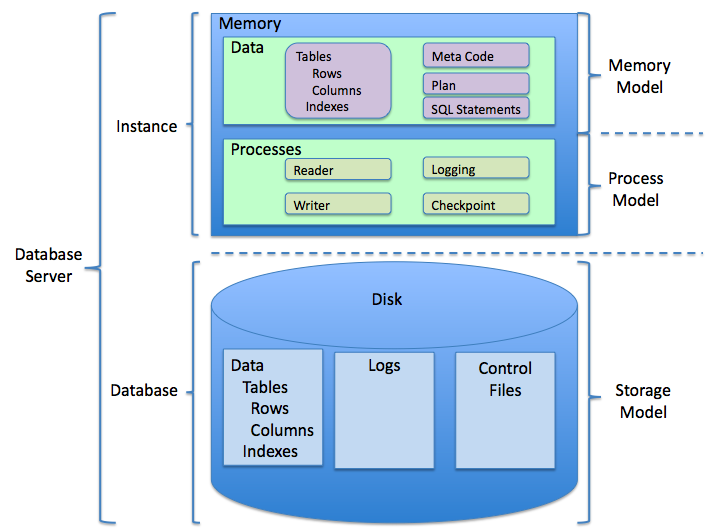|
William Ward Armstrong
William Ward Armstrong is a Canadian mathematician and computer scientist. He earned his Ph.D. from the University of British Columbia in 1966 and is most known as the originator Armstrong's axioms of dependency in a Relational database A relational database is a (most commonly digital) database based on the relational model of data, as proposed by E. F. Codd in 1970. A system used to maintain relational databases is a relational database management system (RDBMS). Many relatio .... Works * William W. Armstrong, Yatsuka Nakamura, Piotr Rudnicki, "Armstrong's Axioms", Formalized Mathematics V. 11 No. 1, pp. 39 – 51, University of Bialystok, 2003. * Guoliang Qu, John R. Feddes, Richard N. Coleman, William W. Armstrong, Jerry L. Leonard, Method and Apparatus for estimating odor concentration using an electronic nose, US patent 6,411,905 B1, June 25, 2002. * W. W. Armstrong, D. O. Gorodnichy, Breaking Hyperplanes to fit Data with Applications to 3D World Modeling and Oil Sand ... [...More Info...] [...Related Items...] OR: [Wikipedia] [Google] [Baidu] |
|
.gif) |
University Of British Columbia
The University of British Columbia (UBC) is a public university, public research university with campuses near Vancouver and in Kelowna, British Columbia. Established in 1908, it is British Columbia's oldest university. The university ranks among the top three universities in Canada. With an annual research budget of $759million, UBC funds over 8,000 projects a year. The Vancouver campus is situated adjacent to the University Endowment Lands located about west of downtown Vancouver. UBC is home to TRIUMF, Canada's national laboratory for Particle physics, particle and nuclear physics, which houses the world's largest cyclotron. In addition to the Peter Wall Institute for Advanced Studies and Stuart Blusson Quantum Matter Institute, UBC and the Max Planck Society collectively established the first Max Planck Institute in North America, specializing in quantum materials. One of the largest research libraries in Canada, the UBC Library system has over 9.9million volumes among it ... [...More Info...] [...Related Items...] OR: [Wikipedia] [Google] [Baidu] |
|
Armstrong's Axioms
Armstrong's axioms are a set of references (or, more precisely, inference rules) used to infer all the functional dependencies on a relational database. They were developed by William W. Armstrong in his 1974 paper. The axioms are sound in generating only functional dependencies in the closure of a set of functional dependencies (denoted as F^) when applied to that set (denoted as F). They are also complete in that repeated application of these rules will generate all functional dependencies in the closure F^+. More formally, let \langle R(U), F \rangle denote a relational scheme over the set of attributes U with a set of functional dependencies F. We say that a functional dependency f is logically implied by F, and denote it with F \models f if and only if for every instance r of R that satisfies the functional dependencies in F, r also satisfies f. We denote by F^ the set of all functional dependencies that are logically implied by F. Furthermore, with respect to a set of inf ... [...More Info...] [...Related Items...] OR: [Wikipedia] [Google] [Baidu] |
|
 |
Relational Database
A relational database is a (most commonly digital) database based on the relational model of data, as proposed by E. F. Codd in 1970. A system used to maintain relational databases is a relational database management system (RDBMS). Many relational database systems are equipped with the option of using the SQL (Structured Query Language) for querying and maintaining the database. History The term "relational database" was first defined by E. F. Codd at IBM in 1970. Codd introduced the term in his research paper "A Relational Model of Data for Large Shared Data Banks". In this paper and later papers, he defined what he meant by "relational". One well-known definition of what constitutes a relational database system is composed of Codd's 12 rules. However, no commercial implementations of the relational model conform to all of Codd's rules, so the term has gradually come to describe a broader class of database systems, which at a minimum: # Present the data to the user as rel ... [...More Info...] [...Related Items...] OR: [Wikipedia] [Google] [Baidu] |
|
Living People
Related categories * :Year of birth missing (living people) / :Year of birth unknown * :Date of birth missing (living people) / :Date of birth unknown * :Place of birth missing (living people) / :Place of birth unknown * :Year of death missing / :Year of death unknown * :Date of death missing / :Date of death unknown * :Place of death missing / :Place of death unknown * :Missing middle or first names See also * :Dead people * :Template:L, which generates this category or death years, and birth year and sort keys. : {{DEFAULTSORT:Living people 21st-century people People by status ... [...More Info...] [...Related Items...] OR: [Wikipedia] [Google] [Baidu] |
|
|
University Of British Columbia Alumni
A university () is an institution of higher (or tertiary) education and research which awards academic degrees in several academic disciplines. ''University'' is derived from the Latin phrase ''universitas magistrorum et scholarium'', which roughly means "community of teachers and scholars". Universities typically offer both undergraduate and postgraduate programs. The first universities in Europe were established by Catholic Church monks. The University of Bologna (), Italy, which was founded in 1088, is the first university in the sense of: *being a high degree-awarding institute. *using the word ''universitas'' (which was coined at its foundation). *having independence from the ecclesiastic schools and issuing secular as well as non-secular degrees (with teaching conducted by both clergy and non-clergy): grammar, rhetoric, logic, theology, canon law, notarial law.Hunt Janin: "The university in medieval life, 1179–1499", McFarland, 2008, , p. 55f.de Ridder-Symoens, Hilde ... [...More Info...] [...Related Items...] OR: [Wikipedia] [Google] [Baidu] |